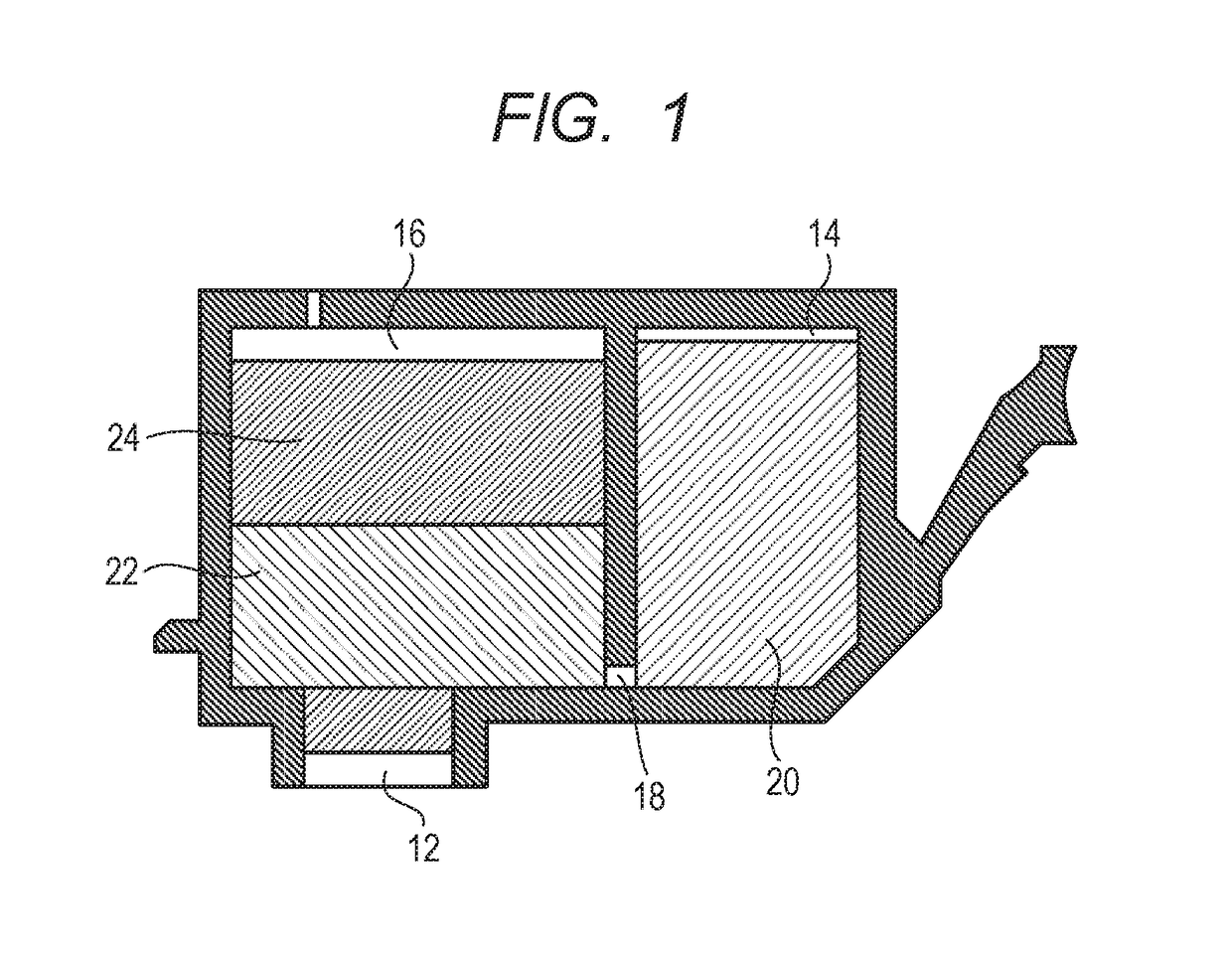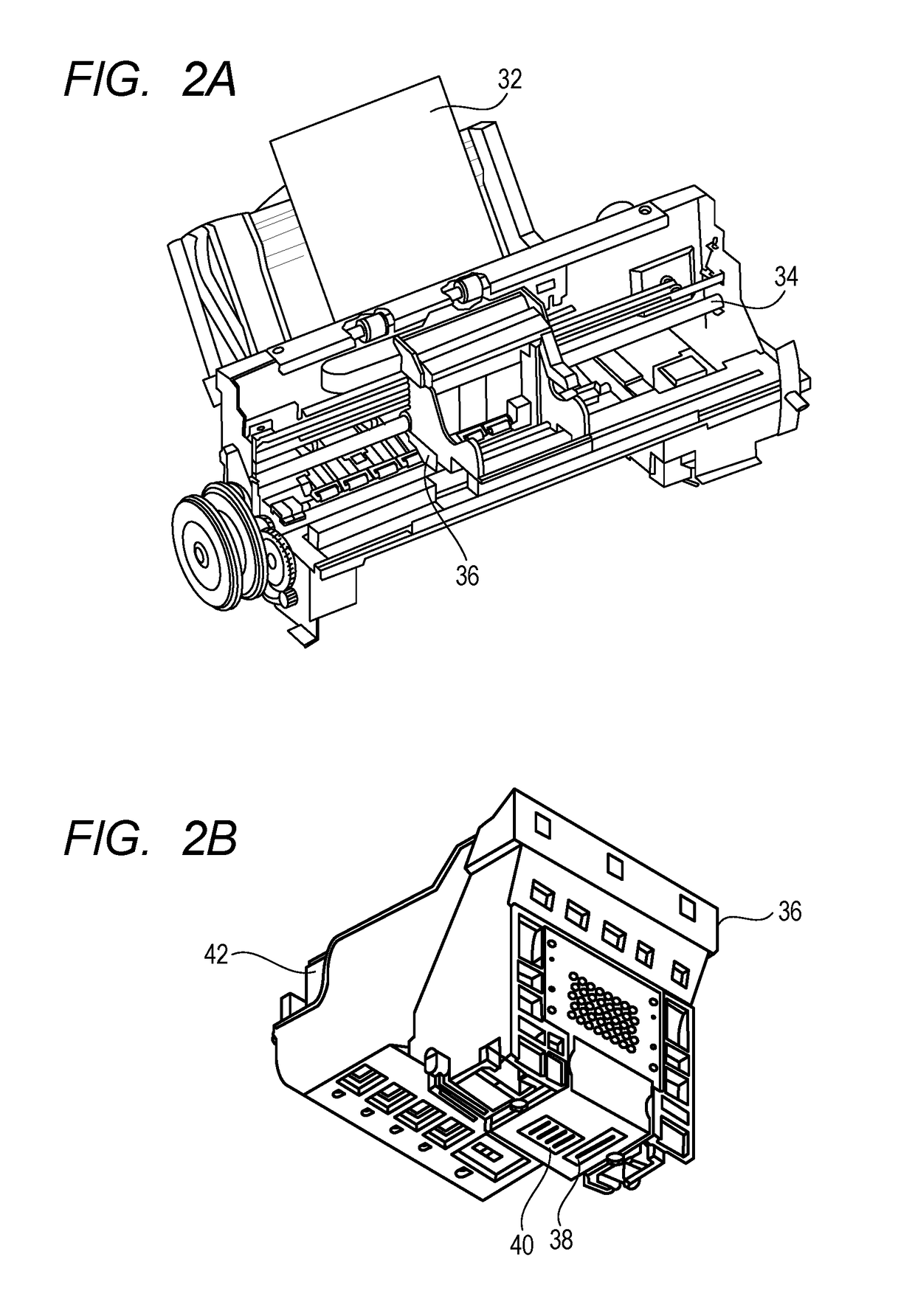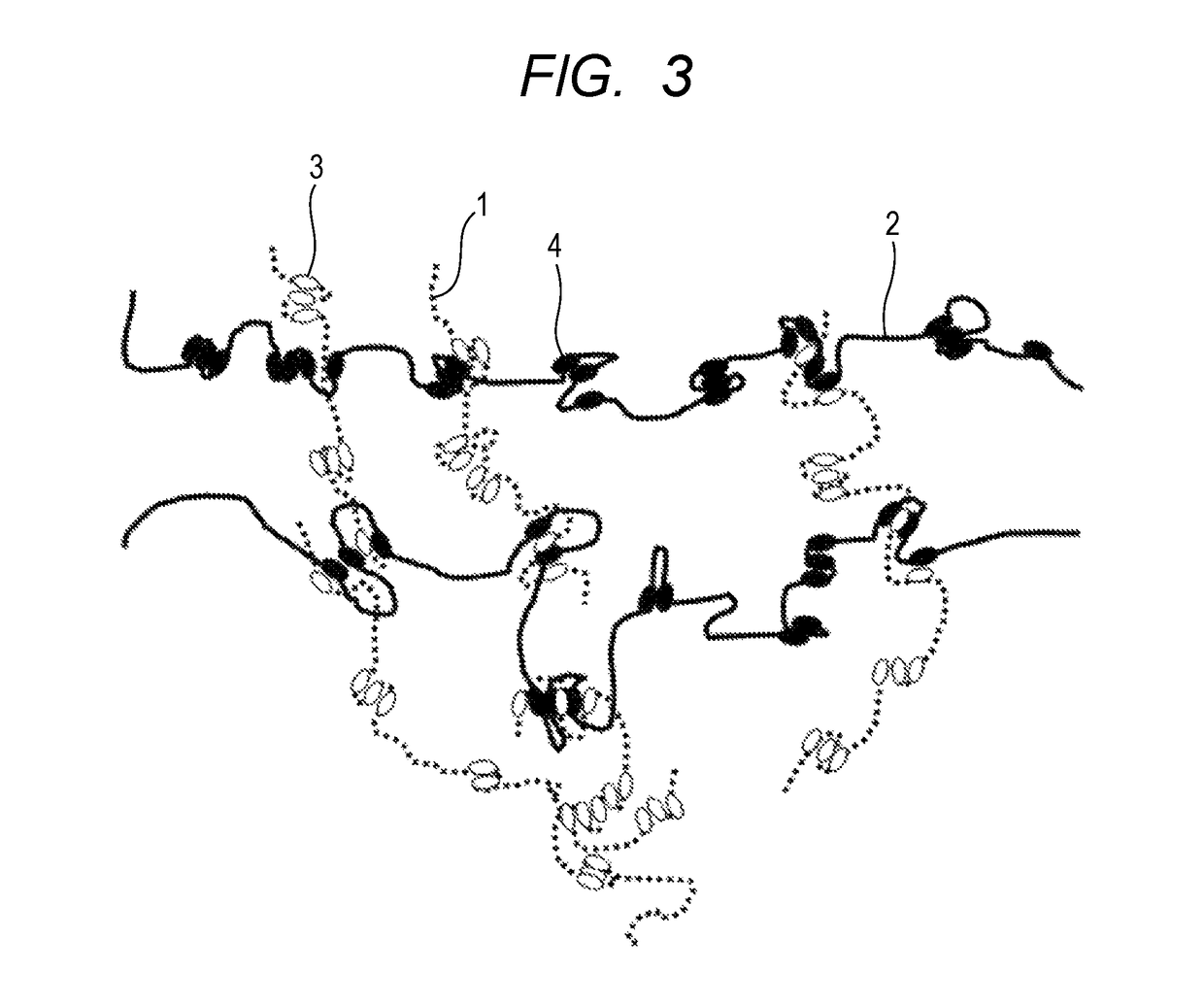Aqueous ink, ink cartridge, and ink jet recording method
a technology of ink jet and ink, which is applied in the field of ink jet recording method, can solve the problems of image limited shear stress that can be applied to particles, and non-uniformity or other defects, etc., and achieve the effect of suppressing a deterioration in ejection property
- Summary
- Abstract
- Description
- Claims
- Application Information
AI Technical Summary
Benefits of technology
Problems solved by technology
Method used
Image
Examples
examples
[0077]The present invention will next be described in further detail with reference to examples and comparative examples, but the invention is not intended to be limited to the following examples without departing from the scope of the invention. The component amounts with “part” or “%” are based on mass unless otherwise noted.
[0078]Synthesis of Urethane Resin
[0079]In a four-necked flask equipped with a thermometer, a stirrer, a nitrogen inlet tube, and a condenser, a polyol and a polyisocyanate in amounts (unit: parts) shown in Tables 1-1 to 1-6 and 0.007 part of dibutyltin dilaurate were fed. The whole was reacted in a nitrogen gas atmosphere at 100° C. for 5 hours. The mixture was cooled to 65° C. or less, then a diol having an anionic group and a chain extender in amounts shown in Tables 1-1 to 1-6 and 150.0 parts of methyl ethyl ketone were added to conduct reaction at 80° C. The reaction mixture was cooled to 40° C., and then 20.0 parts of methanol was added to terminate the r...
PUM
| Property | Measurement | Unit |
|---|---|---|
| acid value | aaaaa | aaaaa |
| temperature | aaaaa | aaaaa |
| time | aaaaa | aaaaa |
Abstract
Description
Claims
Application Information
 Login to View More
Login to View More - R&D
- Intellectual Property
- Life Sciences
- Materials
- Tech Scout
- Unparalleled Data Quality
- Higher Quality Content
- 60% Fewer Hallucinations
Browse by: Latest US Patents, China's latest patents, Technical Efficacy Thesaurus, Application Domain, Technology Topic, Popular Technical Reports.
© 2025 PatSnap. All rights reserved.Legal|Privacy policy|Modern Slavery Act Transparency Statement|Sitemap|About US| Contact US: help@patsnap.com



